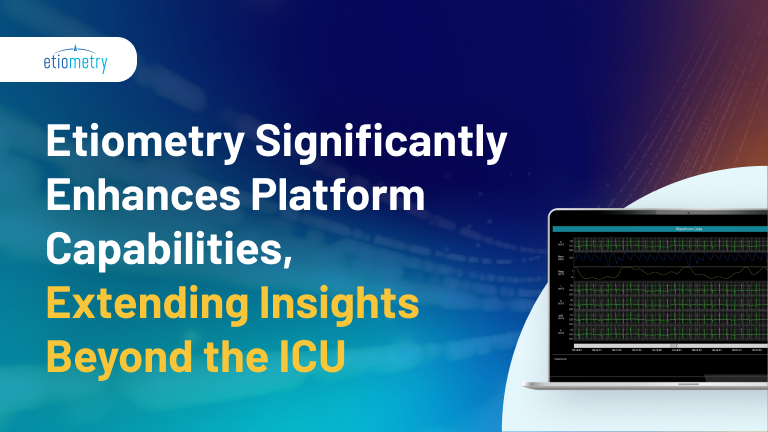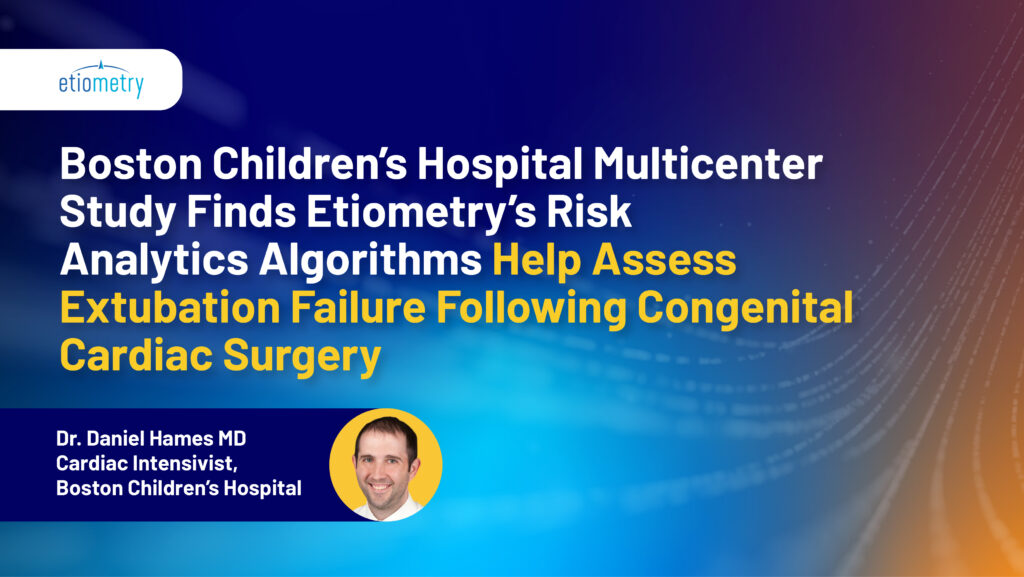Leveraging AI in Learning Health Systems to improve patient outcomes, reduce costs
News and Press Releases
Published on DOTmed, by Etiometry’s CEO Shane Cooke
It’s no secret that hospitals are facing some of their toughest challenges ever. Workforce shortages and burnout are commonplace and operating budgets are tight. Hospital leaders need to find increasingly creative ways to address these challenges and set themselves up for long-term success.
Enter artificial intelligence (AI) technology. Hospitals are adopting the technology at a breakneck pace, and in seemingly every facet of care. This article will explore one specific area that is seeing overwhelmingly positive results – the power of AI to improve learning health systems in the ICU.
The ICU: An unpredictable care setting
One specific place that hospitals are seeing significant positive impact from implementing AI solutions is in the intensive care unit (ICU). A complex and unpredictable care setting, the ICU is also one of the most expensive areas in healthcare. Adding to workforce challenges seen across the healthcare ecosystem, the ICU environment also often requires quick decision making, with each second a matter of life or death. As with other areas in the hospital, ICU clinicians utilize the electronic health record (EHR) for tracking basic information like medications, inputs and outputs, and key vital signs. However, clinicians in the ICU environment have realized that the EHR leaves significant gaps in data, potentially impacting critical decisions like escalation and de-escalation of care.
A clinical solution that fills in the gaps for a complex environment
There are a variety of IT solutions in healthcare that hospital leaders may consider, but many think first of the EHR. While the EHR is a powerful and important tool, there are limitations when relying exclusively on vital signs documented in the EHR. Relying solely on this data can lead to gaps in a patient’s physiologic picture in critical care environments, which can lead to an increased risk of clinical consequences that may result in an adverse event. However, leveraging proven AI clinical decision support tools to get access to more comprehensive clinical data gives providers a holistic view of a patient in critical care, paired with an uninterrupted flow of data collection. This powerful combination fills in those gaps found in the EHR and may improve risk assessment with clinical decision support. Automating workflows so providers can make the best decisions in stressful moments, compared to relying on EHR data alone, ultimately helps deliver the best possible patient outcomes.


